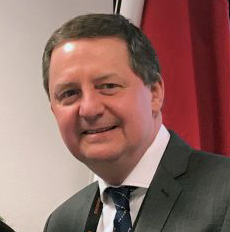The introduction of autonomous ships, often described as the next step for the maritime industry, is looming as projects have already been launched while IMO’s recent MSC99 put the issue high on this year’s agenda, stepping up efforts toward their adoption. At the same time, unmanned vessels, which can be both remote controlled or be fully automated, raise some liability and legal issues.
Certainly, a regulatory framework is needed to clarify the requirements of autonomous systems but at the same time, the autonomous concept needs to earn greater trust from both policymakers and the industry at large. Our recent online poll revealed that the majority (71%) believe that seafarers will not be able to trust an autonomous system. Additionally, our Sea Sense column – in association with the North P&I Club – has asked global experts to provide their perspectives.
Unmanned and autonomous vessels are quickly becoming a reality. Do you think that seafarers will be able to trust an autonomous system?
 Ralf Nagel Ralf NagelChief Executive Officer German Shipowners’ Association |
 Simon Bennett Simon BennettDeputy Secretary General ICS |
|
| Yes, if the conditions for trust have been met. Seafarers need to understand how the technology works, especially, how autonomous vessels take decisions in critical situations. Another condition for trust is a proven track record of a new technology. For this reason, we are looking forward to seeing pilot projects become a reality. Since most accidents onboard are related to human errors, automation can enhance safety. However, we should not become completely reliable on technology, since the threat of cyber incidents and attacks is real. No matter how far autonomous ships will prevail, we will need qualified seafarers; not only to further develop technology, but also to use their human creativity when algorithms fail. | Maybe. However, ICS does not currently agree with the ambitious timescales for adoption of autonomous systems supported by some IMO Member States. The current IMO discussions should seek to address the process of change that the move towards autonomous systems represents, rather than simply providing for specific types of autonomous vessel. Indeed, the consensus within ICS is that automated systems already present challenges with respect to the knowledge and skills required to manage and operate them safely and effectively. ICS will therefore seek to ensure that the regulatory framework for vessels making use of autonomous systems is sufficiently robust that it allows for the adoption of autonomy in the future without negative impacts on safety or pollution prevention. | |
 Colin Gillespie Colin GillespieDeputy Director of Loss Prevention, The North of England P&I Club |
 Dick Welsh Dick WelshDirector Isle of Man Ship Registry |
|
| Yes. Development and the use of the technology that supports autonomous vessels will be gradual. It is likely to be used on manned vessels to drive efficiency and safety gains. This should mean that seafarers become familiar with technologies that support autonomy, such as AI based decision support systems, over time. As familiarity and confidence in technology grows it follows that seafarers are more likely to trust fully autonomous vessels. Trust will not be gained overnight, and it is inevitable that there will be incidents that set back the progress of autonomous vessel development, but I believe that in time, perhaps over several decades, these vessels will gain the trust of seafarers and the wider industry. | Yes. Seafarers have been constantly adapting throughout the centuries, but there needs to be transition. We hear of the immediacy of fully automated vessels, pushed by a few providers without the full buy-in of the industry, or more importantly, the legal and practical implications of unmanned traffic on our oceans. But I have no doubt it will come. The increased use of data and connectivity is already seeing manned shore-based control stations covering ship operations around the globe 24/7. I see natural progression in this model where more responsibility for efficiency, routeing and diagnostics is on shore. Maritime expertise and IT technicians will merge to become operators. This may not fit all trades, but the seafarer will adapt. | |
 Mark Dickinson Mark DickinsonGeneral- Secretary Nautilus International |
 Capt.David J. Patraiko Capt.David J. PatraikoMaster Marine, Director of Projects The Nautical Institute |
|
| Maybe. At this stage, we believe it is not advisable for seafarers to place all their trust in automated systems. We would like to see technology being used to support seafarers rather than replacing them. Properly introduced, automation and digital technologies could transform shipping in a positive way – eliminating some dirty and dangerous tasks, and cutting the burden of paperwork and bureaucracy. Managed poorly, it could undermine safety and erode the essential base of maritime skills and experience. Our research shows that seafarers are not necessarily opposed to automation, but want to avoid over-reliance on systems that may be subject to reliability and redundancy problems, cyber-attacks, software bugs, sensor failures and IT and communication difficulties. | Yes .Trust needs to be earned and I think we are in a critical period in the development of autonomous systems (and there are many terms and definitions) where that trust needs to be demonstrated. The Nautical Institute (NI) is particularly concerned that trust be demonstrated in 3 areas:
Firstly, there are many (perhaps 2000+) small (10 meter or less) autonomous craft in operation currently and the chances of a manned vessel meeting an unmanned vessel will be increasing. The NI would like a global ‘recognition’ that all vessels will comply with Colregs. Mariners must have confidence that an autonomous craft will predictably comply with these rules. Secondly, many of the systems and sensors developed for autonomous craft will find themselves installed on manned vessels with the intention of ‘improving operations’. The sensors may improve ‘vision’ in poor conditions and systems using Artificial Intelligence and Machine Learning will be used to ‘help’ mariners make better decisions or even take some decisions of their own. This is evolutionary rather than revolutionary but we as an industry will need to be aware of the Human Element issues and the level of ‘trust’ one can have with these emerging systems. Thirdly, with autonomous systems there will be people ashore with some level of control who have not be mariners themselves. They must be capable of demonstrating good seamanship practices for trust to occur. The NI are using our available resources to engage with the industry to address these areas which are critical to trust. |


































































Ocean-going autonomous ships are many decades away. IMO had just started their process of discussing this subject which in itself dictates that any regulatory agreement is at least 20 years away and probably considerably longer.
Yes the technology may be available, but what is the cost and what are the advantages? Does any shipowner want to take the risk of operating an autonomous vessel over long ocean passages taking some weeks? Perhaps more importantly will any Charterer pay and accept these risks?
It won’t happen in my lifetime, that’s for sure!
The prospect of autonomous ocean-going vessels is interesting and the technology fascinating but, so far, the economic rationalization for this is obscure. Of course mariners will adapt, but having
experienced shipping of the past as a shipmaster, ship manager, port manager and pilot where such refinements as gyro, radar, echo-sounders, Doppler logs, transverse thruster’s, gyro compasses, etc., were each resisted and only grudgingly accepted by those who paid the bills, I ponder on who is intended to pay the additional bills related to those costs and liabilities associated with transitions from ocean passages to and from the berth. What buy-in required of national administrations, regulators and port managers and how are local navigators and port-based management systems intended to harmonise with remote managers and remote navigation controls … and who is to pay the bills.